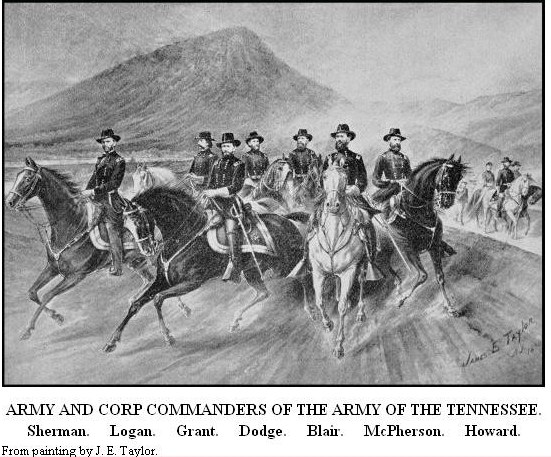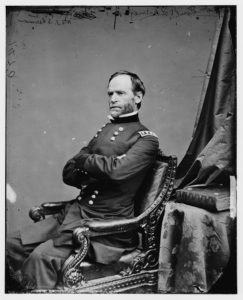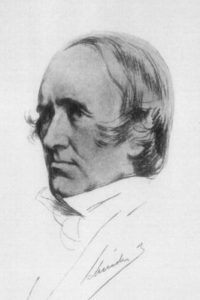From a Seneca County, New York newspaper in October 1866:
Gen. Sherman Endorses the President.
The Washington correspondent of the New York Tribune, speaks of this distinguished General:
“I am informed that General Sherman has made a second surrender to the Rebels, more disastrous to his fame than his celebrated surrender to Joe Johnston. We all know that the General is conservative, but despite Grant’s orders not to interfere with politics, he makes his conservatism political. He has written a letter to the President, indorsing the policy unequivocally, sustaining the President’s course since Lee’s surrender, and making no allusion to the amendment. This letter is held in reserve, and will be printed just before the New York election, in hope of carrying over some half-and-half Republicans.”
And this it is which makes a surrender to the Rebels!
We have but very little doubt of all this. The best men, and the best minds in the army are with the Restoration Policy of the President. What they fought for was 36 United States, not 26, and hence such letters from Gen. Sherman.
William Tecumseh Sherman was criticized for the lenient terms he originally agreed to for the surrender of Joseph Johnston’s army in April 1865.
150 years ago today another New York newspaper used the rumors of Sherman’s support for President Johnson to launch an attack on Wendell Phillips
From The New-York Times October 29, 1866:
EVEN-HANDED JUSTICE. – Since the announcement by telegraph a few days since that Gen. SHERMAN approves of what is popularly known as the President’s policy of reconstruction, we have received at least a hundred papers in which he is stigmatized as a “Copperhead,” and a great variety of charges not less terrible than this are brought against him. What will be said when the letter he has written expressing his views. [sic] gets into print, no man can tell: but if he be not denounced as a traitor and a coward, and if WENDELL PHILLIPS does not propose to have him gibbeted on short notice, it will be very curious. Those who remember the exploits performed by WENDELL PHILLIPS on the field of battle and elsewhere in saving the country during its days of peril, will certainly justify him in treating SHERMAN as a traitor, and also in dealing with GRANT in the style he has done, as at least belonging to the suspects. The armies of LEE and JO. JOHNSTON, it will be remembered, surrendered to PHILLIPS last year, and when he also compelled GRANT and SHERMAN to surrender, he can then turn them all over to the hangman.
The Times was almost certainly referring to a speech Wendell Phillips presented at the Cooper Institute on October 25, 1866 (reported here). Mr. Phillips called for Andrew Johnson’s prompt removal from office because of the president’s “treachery, his collusion with traitors, his resistance to the laws of Congress, the blood of New-Orleans upon his hands, his crusade [I think] against the whole essence and spirit of the hour.” He went on to say that General Grant was also responsible for the New Orleans riot. As General-in-Chief it was his job to keep the streets safe in the “conquered Republic”. Benjamin Butler would have kept New Orleans safe. “The war is not yet ended. The fight recommences in a new shape. If Gen. GRANT has surrendered to JOHNSON as SHERMAN did to JOHNSTON, why let us know it. This people are bound to and certain to save the nation.”
Garry Boulard writes that Andrew Johnson’s Swing Around the Circle caused The New-York Times to become much less supportive of the president.[1] But it seems like the paper was going to oppose anyone bashing General Grant.
RINOs today; half-and-half Republicans 150 years ago. Both more moderate than the labelers, although the labelers are coming from opposite sides of the left-right political spectrum. From Project Gutenberg: generals, Wendell Phillips. From the Library of Congress: General Sherman
- [1]Boulard, Garry The Swing Around the Circle: Andrew Johnson and the Train Ride that Destroyed a Presidency. Bloomington, Indiana: iUniverse, 2008. Print. page 156.↩



